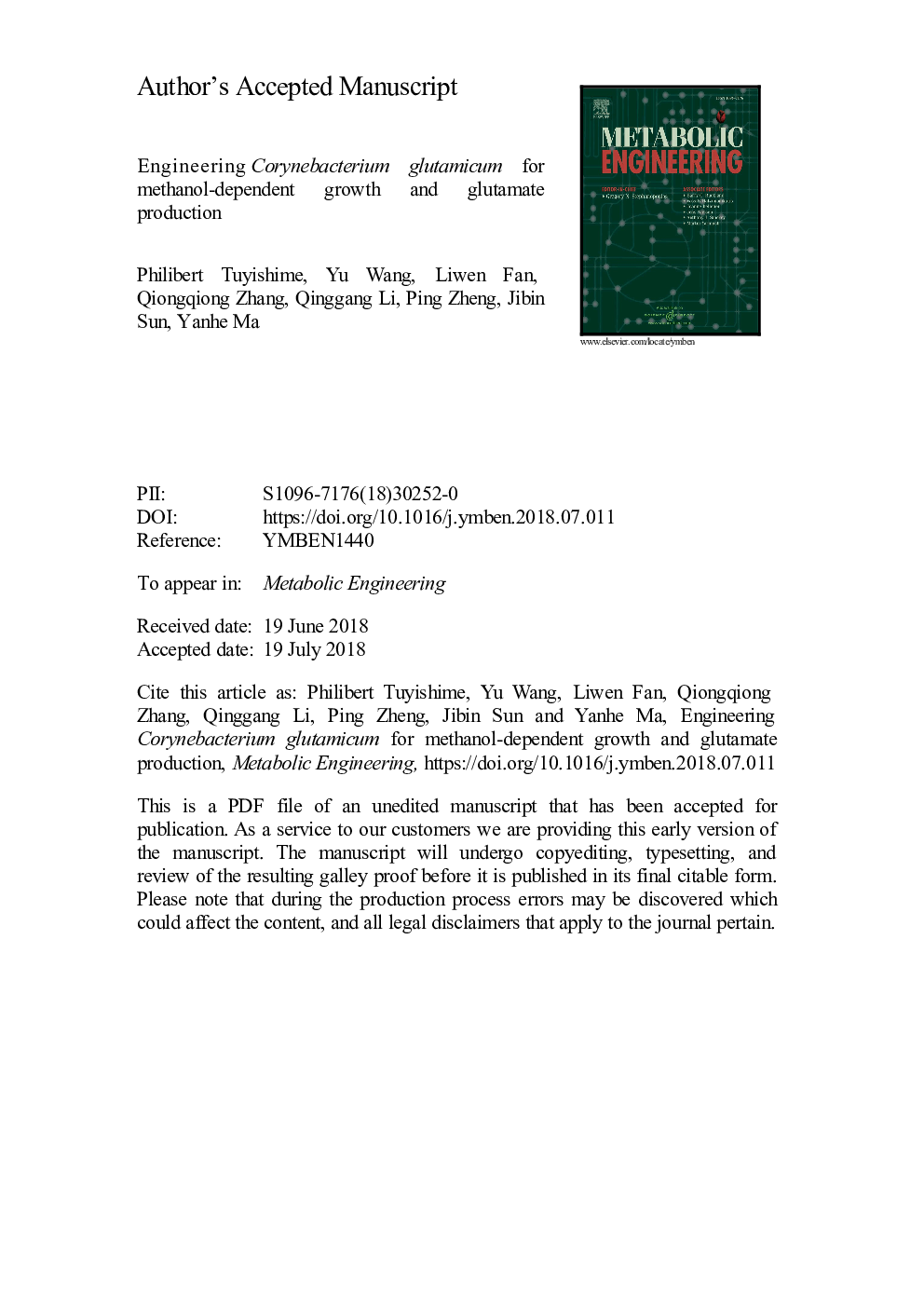| Article ID | Journal | Published Year | Pages | File Type |
|---|---|---|---|---|
| 10999842 | Metabolic Engineering | 2018 | 51 Pages |
Abstract
Methanol is a promising feedstock for bioproduction of fuels and chemicals, thus massive efforts have been devoted to engineering non-native methylotrophic platform microorganisms to utilize methanol. Herein, we rationally designed and experimentally engineered the industrial workhorse Corynebacterium glutamicum to serve as a methanol-dependent synthetic methylotroph. The cell growth of the methanol-dependent strain relies on co-utilization of methanol and xylose, and most notably methanol is an indispensable carbon source. Due to the methanol-dependent characteristic, adaptive laboratory evolution was successfully applied to improving methanol utilization. The evolved mutant showed a 20-fold increase in cell growth on methanol-xylose minimal medium and utilized methanol and xylose with a high mole ratio of 3.83:1. 13C-labeling experiments demonstrated that the carbon derived from methanol was assimilated into intracellular building blocks, high-energy carriers, cofactors, and biomass (up to 63% 13C-labeling). By inhibiting cell wall biosynthesis, methanol-dependent glutamate production was also achieved, demonstrating the potential application in bioconversion of methanol into useful chemicals. Genetic mutations detected in the evolved strains indicate the importance of intracellular NAD+/NADH ratio, substrate uptake, and methanol tolerance on methanol utilization. This study reports significant improvement in the area of developing fully synthetic methylotrophs.
Related Topics
Physical Sciences and Engineering
Chemical Engineering
Bioengineering
Authors
Philibert Tuyishime, Yu Wang, Liwen Fan, Qiongqiong Zhang, Qinggang Li, Ping Zheng, Jibin Sun, Yanhe Ma,
